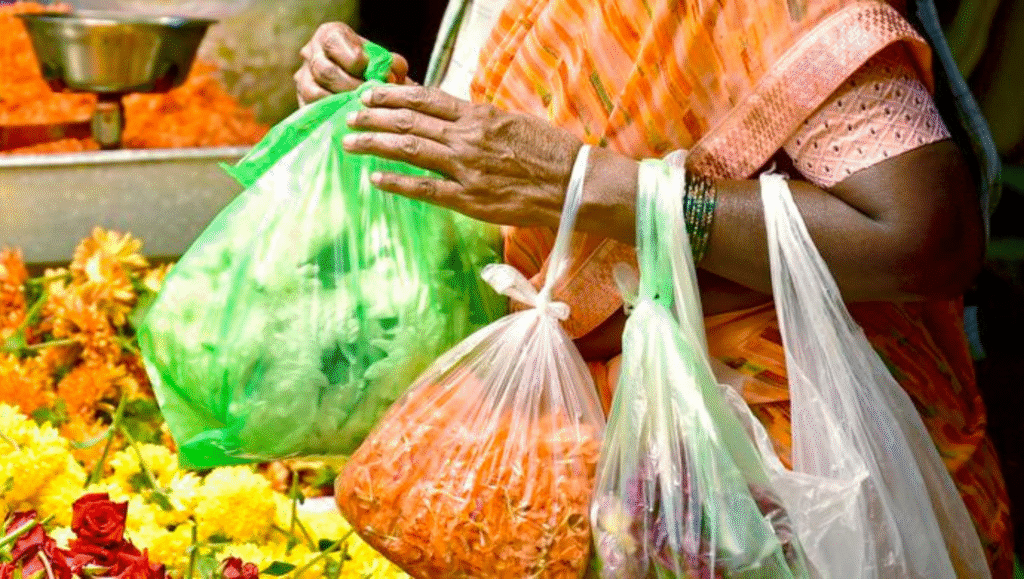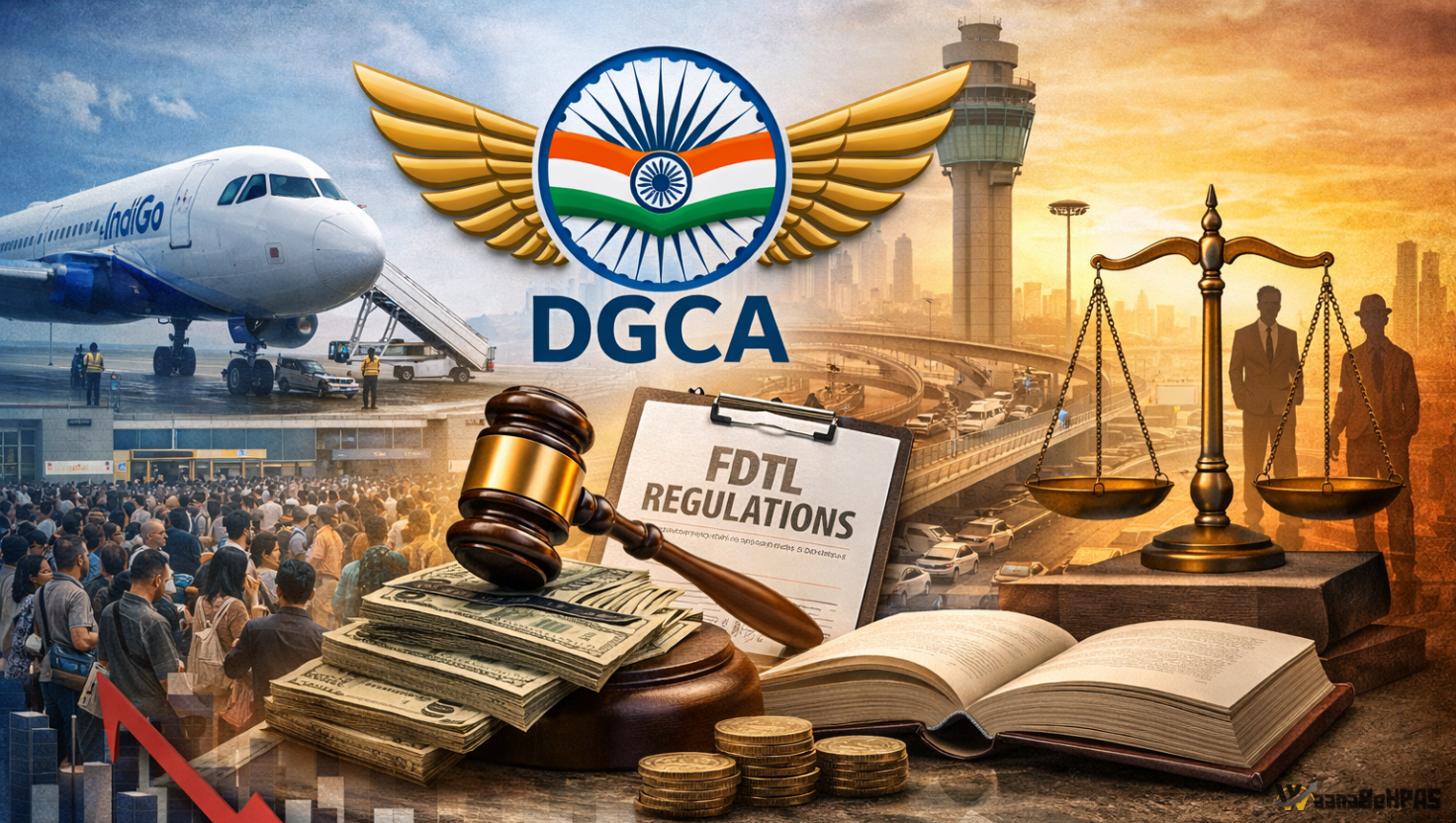Single-Use Plastic Ban
Syllabus: Pollution (UPSC GS III)
Source: The Hindu
Why in News?
Despite Karnataka’s 2016 ban under the Environment (Protection) Act, 1986, single-use plastics (SUPs) are still widely used. Weak enforcement, illegal production, and low public awareness remain major hurdles.
About the Ban
- First State Ban: Karnataka became the first Indian state to ban SUP in 2016.
- National Ban (2022): Union Government prohibited 19 SUP items (carry bags, straws, cutlery, thermocol, banners).
- Weak Enforcement: Between 2021–24, authorities inspected 1.65 lakh units, seizing 1,012 tonnes of banned plastics. Raids declined sharply in later years.
Scale of the Problem
- Statewide Waste: Karnataka generates 3.45–5.28 lakh tonnes of plastic annually (~1,000 tonnes/day).
- Bengaluru’s Burden: Produces 500 tonnes daily; only 40% processed, rest dumped in landfills or water bodies.
- Illegal Units: 300+ unregistered manufacturers in Bengaluru operate with high profit margins.
Plastic Enforcement Data in Bengaluru:
- Sept 3–16, 2025: 5,581 raids, ₹62,57,439 fines, 30,421.04 kg plastic seized.
- Sept 2019–Sept 2025: 1,04,210 cases, ₹4.59 crore fines, 1,18,450 kg plastic seized.
- Year-wise KSPCB Raids and Seizures:
- 2022–23: 1,25,661 entities inspected, 620 tonnes seized, ₹394.45 lakh fines.
- 2023–24: 22,192 entities, 169 tonnes seized, ₹101.9 lakh fines.
- 2024–25: 18,111 entities, 223.09 tonnes seized, ₹63.78 lakh fines.
- Illegal Units: 300+ unregistered manufacturers in Bengaluru operate with high profit margins.
Why It Matters
- Microplastics: Enter soil, crops, water, and human food chains.
- Human Health: Linked to inflammation, respiratory problems, thyroid issues.
- Ecosystem Damage: Soil fertility loss, aquatic biodiversity harm.
- Animal Harm: Stray cattle and dogs often die from plastic ingestion.
- Global Angle: UN estimates 2,000 truckloads of plastic enter oceans daily, adding to the Great Pacific Garbage Patch.
Legal & Policy Framework
- Environment (Protection) Act, 1986: Legal backing for bans.
- Plastic Waste Management Rules (2016 & Amendments): Introduced Extended Producer Responsibility (EPR).
- EPR Portal: Tracks compliance but weak enforcement — only 129 registered recyclers vs 1,200+ producers/importers.
Key Challenges
- Enforcement Decline: Raids dropped from 1.25 lakh (2022–23) to 18,000 (2024–25).
- Shadow Economy: Illegal hubs in Bengaluru (Peenya, Dasarahalli, SP Road).
- Consumer Behaviour: Public prefers cheap convenience; low awareness.
- Recycling Issues: Waste segregation poor; processing facilities under-utilised.
- Policy–Practice Gap: Focus on fines, not systemic waste management or incentives.
Way Forward
- Stronger Enforcement: Dedicated task forces, GPS-enabled inspections, more KSPCB staff.
- Circular Economy Push: Subsidies for cloth/jute alternatives, strict EPR penalties.
- Public Involvement: Awareness drives, BYOB (Bring Your Own Bag) campaigns, rewards for zero-waste businesses.
- Urban Governance: Ward-level Material Recovery Facilities (MRFs), integration with Swachh Bharat.
- Technology Use: AI & IoT for waste tracking, support for biodegradable packaging startups.
Conclusion
The single-use plastic ban is ineffective without strict enforcement, behavioural change, and market incentives. Karnataka’s case shows the urgent need for a mission-mode, nationwide strategy — combining law, technology, community action, and affordable alternatives to achieve Plastic-Free 2047 in line with the LiFE (Lifestyle for Environment) vision.











